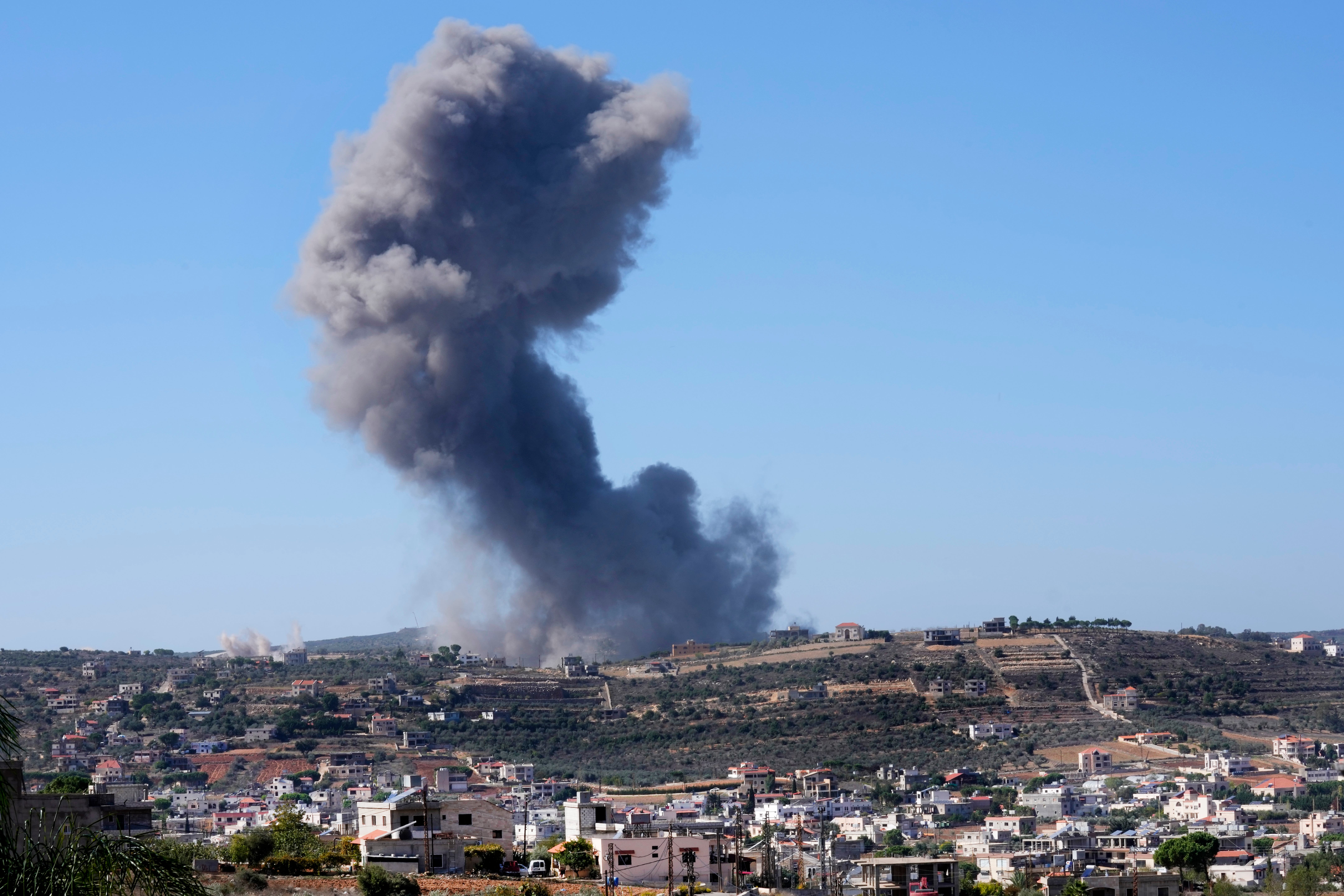Some UK embassy staff and families withdrawn from Lebanon amid Gaza tensions
The Foreign Office pointed to the current ‘security situation’ as the reason behind the move.

Your support helps us to tell the story
From reproductive rights to climate change to Big Tech, The Independent is on the ground when the story is developing. Whether it's investigating the financials of Elon Musk's pro-Trump PAC or producing our latest documentary, 'The A Word', which shines a light on the American women fighting for reproductive rights, we know how important it is to parse out the facts from the messaging.
At such a critical moment in US history, we need reporters on the ground. Your donation allows us to keep sending journalists to speak to both sides of the story.
The Independent is trusted by Americans across the entire political spectrum. And unlike many other quality news outlets, we choose not to lock Americans out of our reporting and analysis with paywalls. We believe quality journalism should be available to everyone, paid for by those who can afford it.
Your support makes all the difference.Some staff and family members have been temporarily withdrawn from the British embassy in Lebanon, amid growing tensions in the region sparked by the escalating situation in Gaza.
The Foreign Office pointed to the current “security situation” as the reason behind the move, which comes after Israel and Lebanon’s Hezbollah militant group traded fire along the border.
Guidance on the Foreign, Commonwealth and Development Office (FCDO) website said: “FCDO advises against all travel to Lebanon due to risks associated with the conflict between Israel and the Occupied Palestinian Territories.
“There are ongoing mortar and artillery exchanges and air strikes in South Lebanon, on the boundary with Israel. Tensions are high and events could escalate with little warning, which could affect or limit exit routes out of Lebanon.
“There is also a risk of civil unrest. There have been large protests outside embassies, including outside the US and French embassies on October 17. Further protests are expected. British nationals should exercise caution and avoid areas where demonstrations may be held.
“Due to the security situation, some staff at the British embassy and all family members of staff have been temporarily withdrawn. The embassy continues with essential work including services to British nationals.”
Four civilians were killed by an Israeli air strike in south Lebanon on Sunday evening, including three children, a local civil defence official and state-run media reported.
The Israeli military said it had attacked Hezbollah targets in response to anti-tank fire that killed an Israeli civilian.
Hezbollah said it fired Grad rockets from southern Lebanon into Israel in response.
Rishi Sunak welcomed the fact more than 100 British nationals have been able to flee the conflict in Gaza, as he said that UK diplomatic efforts would continue in the region.
I’m pleased that over 100 British nationals have now been able to leave Gaza thanks to our diplomatic engagement
The Prime Minister said: “We have been very clear and consistent that we support humanitarian pauses, which are there specifically to allow aid to get into Gaza and hostages and foreign nationals to come out.
“I’m pleased that over 100 British nationals have now been able to leave Gaza thanks to our diplomatic engagement.
“I spoke to both the Egyptian president and the Israeli prime minister about this specific issue last week.”
It is hoped that more British citizens will be able to leave through the Rafah crossing in the coming days, after the border checkpoint remained closed over the weekend.
The Foreign Office confirmed that it remained closed to foreign nationals on Sunday, having been shut on Saturday following an apparent row between Israel and the Palestinians over evacuating injured patients.
British nationals have spoken about being turned away from the crossing on Saturday when it was unexpectedly sealed.
Downing Street said it is in contact with those still trapped in the territory. It could not confirm how many remain, but it is thought to be around 100.
Mr Sunak’s spokesman said the Rafah crossing’s closure is “disappointing” and that the Government will use “all diplomatic options available to us” to press for its reopening in co-ordination with international partners.
More than 9,700 Palestinians have been killed in the territory in nearly a month of war, as Israel’s military said it had encircled Gaza City and divided the territory in two.
Meanwhile in London, police are considering whether to ban a pro-Palestinian march planned for Armistice Day.
The Metropolitan Police said it would use “all powers and tactics” at its disposal to prevent disruption, including Section 13 of the Public Order Act 1986, which allows the banning of a procession when there is a risk of serious disorder.
Ms Coutinho said ministers would “stand fully behind” police if they choose to ban the demonstration.
“If they were to choose to ban those protests then the Government would stand fully behind them.
“It is a decision that rests with the police.
“The ministers involved have made it very clear that they have serious concerns.
“I think people in this country want to make sure that veterans and the memories of fallen soldiers are respected.”